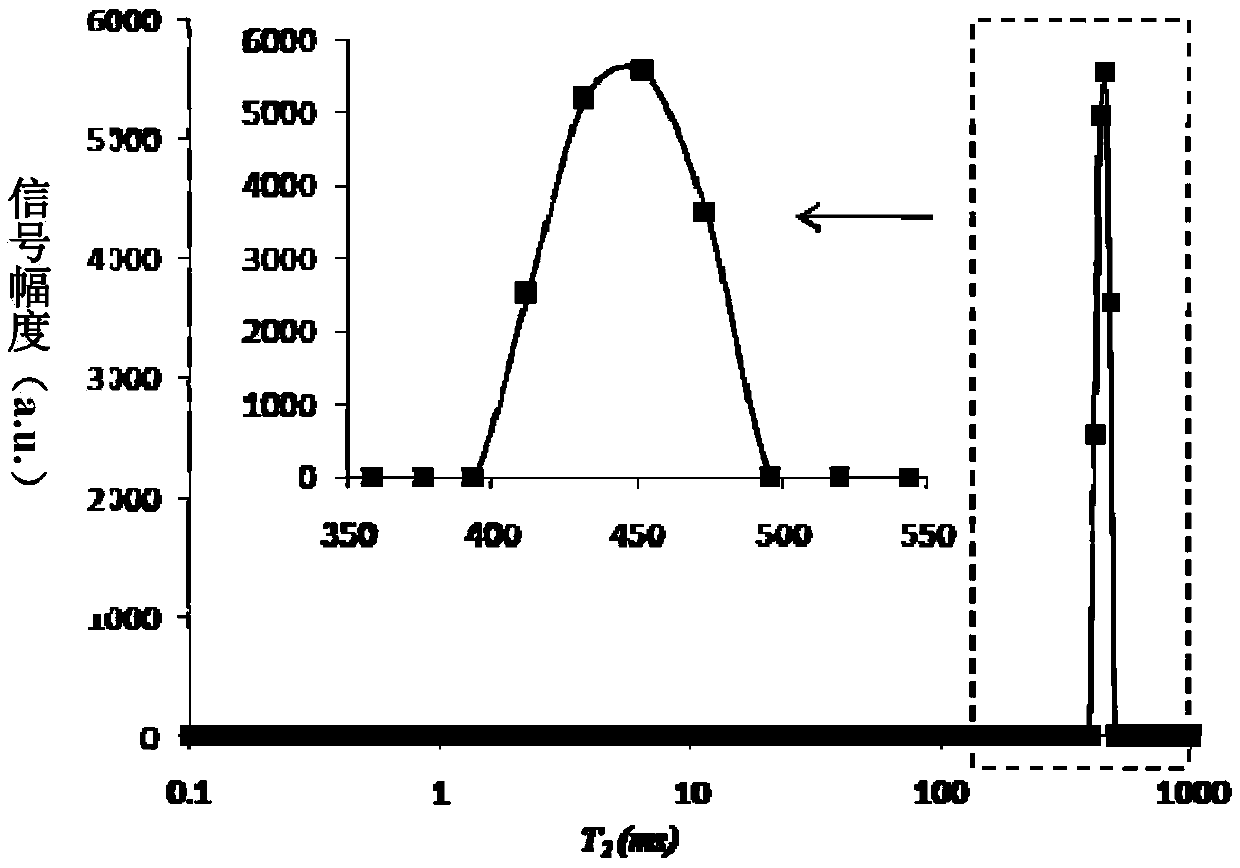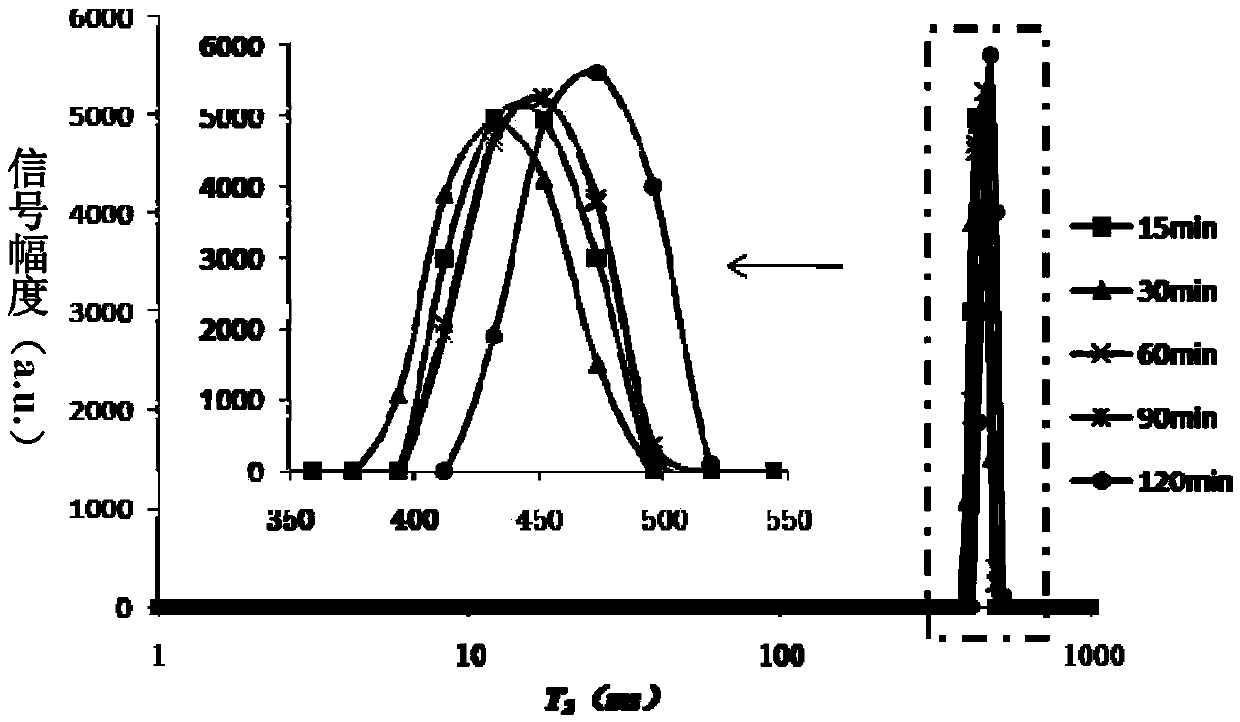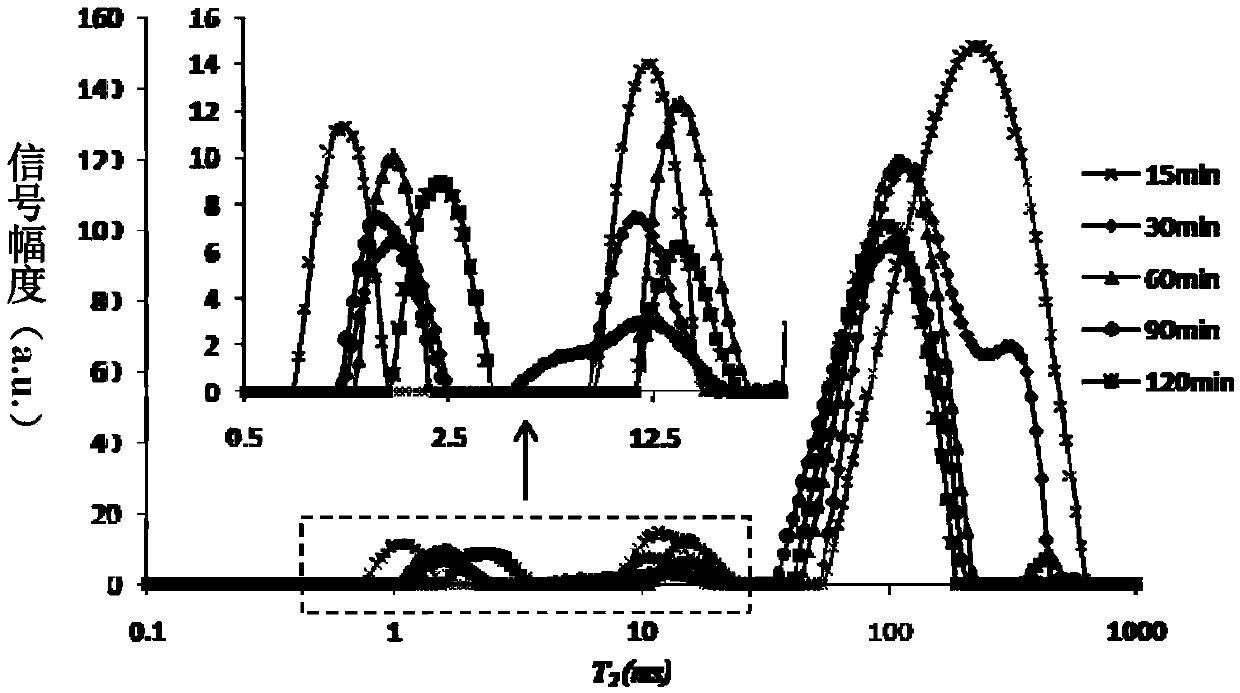Texture quality non-destructive testing method in sea cucumber heating process
A heating process, non-destructive testing technology, applied in the direction of using nuclear magnetic resonance for analysis, etc., can solve the problems of low-field nuclear magnetic resonance technology heating temperature and heating time without specific application, and achieve high degree of automation of processing technology, stable detection value, The effect of good sea cucumber shape
- Summary
- Abstract
- Description
- Claims
- Application Information
AI Technical Summary
Problems solved by technology
Method used
Image
Examples
Embodiment 1
[0038] Establishment of low-field NMR transverse relaxation spectrum database of sea cucumber during low-temperature heating:
[0039] Remove the spout, viscera and tendons of fresh and live sea cucumbers, and clean them up, and then heat the sea cucumbers for different lengths of time under low-temperature heating conditions of 20 to 70°C (the time points selected for recording in this embodiment are 15min, 30min, 60min, 90min and In actual application, the time interval can be shortened according to the needs, and the transverse relaxation map data of more time points can be measured to improve the accuracy of the estimated value in the later stage); For resonance detection, the detection parameters are set to: 90-degree pulse width P 1 :13μs, 180 degree pulse width P 2 : 26μs, re-sampling waiting time T w :1000~4000ms, analog gain RG 1 :10~20, digital gain DRG 1 :1~5, preamp gain PRG:1, NS:8, NECH:1000~5000, receiver bandwidth SW: 200KHz, control parameter RFD of start ...
Embodiment 2
[0047] Take the fresh sea cucumber to be tested, remove the spit, viscera and tendons, and clean it. After heating at a constant temperature in a water bath at 45°C for 15 minutes, the sea cucumber samples were tested using a low-field nuclear magnetic equipment (NMI20-030H-I, Shanghai Numei Electronics Technology, NMI20-030H-I), and the parameters were set as: 90-degree pulse width P 1 :13μs, 180 degree pulse width P 2 : 26μs, re-sampling waiting time T w :2000ms, analog gain RG 1 :15, digital gain DRG 1 : 3, preamplifier gain PRG: 1, NS: 8, NECH: 3000, receiver bandwidth SW: 200KHz, control parameter RFD of start sampling time: 0.002ms, delay DL 1 : 0.5ms. Then a one-dimensional inverse Laplace algorithm is used as the transverse relaxation time T 2 Inversion algorithm (number of iterations: between 100,000 and 10 million times, preferably 1,000,000 times) to obtain the transverse relaxation characteristic map of each sample (such as Figure 4 , Table 7). The obtained...
Embodiment 3
[0052] Take the fresh sea cucumber to be tested, remove the spit, viscera and tendons, and clean it. After heating at a constant temperature in a water bath at 90°C for 15 minutes, the sea cucumber samples were tested using low-field nuclear magnetic equipment (NMI20-030H-I, Shanghai Numei Electronics Technology, NMI20-030H-I), and the parameters were set as: 90° pulse width P 1 :13μs, 180 degree pulse width P 2 : 26μs, re-sampling waiting time T w :2000ms, analog gain RG 1 :15, digital gain DRG 1 : 3, preamplifier gain PRG: 1, NS: 8, NECH: 3000, receiver bandwidth SW: 200KHz, control parameter RFD of start sampling time: 0.002ms, delay DL 1 : 0.5ms. Then a one-dimensional inverse Laplace algorithm is used as the transverse relaxation time T 2 Inversion algorithm (number of iterations: between 100,000 and 10 million times, preferably 1,000,000 times) to obtain the transverse relaxation characteristic map of each sample (such as Figure 5 , Table 9). The obtained sample ...
PUM
 Login to View More
Login to View More Abstract
Description
Claims
Application Information
 Login to View More
Login to View More - R&D
- Intellectual Property
- Life Sciences
- Materials
- Tech Scout
- Unparalleled Data Quality
- Higher Quality Content
- 60% Fewer Hallucinations
Browse by: Latest US Patents, China's latest patents, Technical Efficacy Thesaurus, Application Domain, Technology Topic, Popular Technical Reports.
© 2025 PatSnap. All rights reserved.Legal|Privacy policy|Modern Slavery Act Transparency Statement|Sitemap|About US| Contact US: help@patsnap.com



